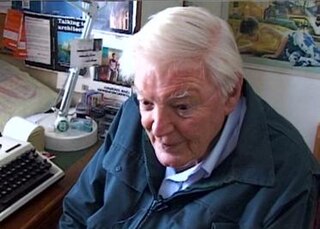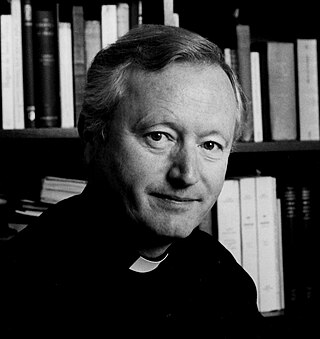Related Research Articles
Aesthetics is the branch of philosophy concerned with the nature of beauty and the nature of taste and, in a broad sense, incorporates the philosophy of art. Aesthetics examines the philosophy of aesthetic value, which is determined by critical judgments of artistic taste; thus, the function of aesthetics is the "critical reflection on art, culture and nature".

Proclus Lycius, called Proclus the Successor, was a Greek Neoplatonist philosopher, one of the last major classical philosophers of late antiquity. He set forth one of the most elaborate and fully developed systems of Neoplatonism and, through later interpreters and translators, exerted an influence on Byzantine philosophy, Early Islamic philosophy, Scholastic philosophy, and German Idealism, especially G.W.F. Hegel, who called Proclus's Platonic Theology "the true turning point or transition from ancient to modern times, from ancient philosophy to Christianity."

Scholasticism was a medieval school of philosophy that employed a critical organic method of philosophical analysis predicated upon Aristotelianism and the Ten Categories. Christian scholasticism emerged within the monastic schools that translated scholastic Judeo-Islamic philosophies, and "rediscovered" the collected works of Aristotle. Endeavoring to harmonize his metaphysics and its account of a prime mover with the Latin Catholic dogmatic trinitarian theology, these monastic schools became the basis of the earliest European medieval universities, and thus became the bedrock for the development of modern science and philosophy in the Western world. Scholasticism dominated education in Europe from about 1100 to 1700. The rise of scholasticism was closely associated with these schools that flourished in Italy, France, Portugal, Spain and England.
In psychoanalysis and other psychological theories, the unconscious mind is the part of the psyche that is not available to introspection. Although these processes exist beneath the surface of conscious awareness, they are thought to exert an effect on conscious thought processes and behavior. Empirical evidence suggests that unconscious phenomena include repressed feelings and desires, memories, automatic skills, subliminal perceptions, and automatic reactions. The term was coined by the 18th-century German Romantic philosopher Friedrich Schelling and later introduced into English by the poet and essayist Samuel Taylor Coleridge.
1280 (MCCLXXX) was a leap year starting on Monday in the Julian calendar. It was the 1280th year of the Common Era (CE) and Anno Domini (AD) designations, the 280th year of the 2nd millennium, the 80th year of the 13th century, and the first year of the 1280s decade.

Lincoln Cathedral, also called Lincoln Minster, and formally the Cathedral Church of the Blessed Virgin Mary of Lincoln, is a Church of England cathedral in Lincoln, England. It is the seat of the bishop of Lincoln and is the mother church of the diocese of Lincoln. The cathedral is governed by its dean and chapter, and is a grade I listed building.

Colin Ward was a British anarchist writer and editor. He has been called "one of the greatest anarchist thinkers of the past half century, and a pioneering social historian."

Robert Grosseteste, also known as Robert Greathead or Robert of Lincoln, was an English statesman, scholastic philosopher, theologian, scientist and Bishop of Lincoln. He was born of humble parents in Suffolk, but the association with the village of Stradbroke is a post-medieval tradition. Upon his death, he was revered as a saint in England, but attempts to procure a formal canonisation failed. A. C. Crombie called him "the real founder of the tradition of scientific thought in medieval Oxford, and in some ways, of the modern English intellectual tradition". As a theologian, however, he contributed to increasing hostility to Jews and Judaism, and spread the accusation that Jews had purposefully suppressed prophetic knowledge of the coming of Christ, through his translation of the Testaments of the Twelve Patriarchs.

Peter David Eisenman is an American architect, writer, and professor. Considered one of the New York Five, Eisenman is known for his high modernist and deconstructive designs, as well as for his authorship of several architectural books. His work has won him several awards, including the Wolf Prize in Arts.
Christopher Janaway is a philosopher and author. He earned degrees from the University of Oxford. Before moving to Southampton in 2005, Janaway taught at the University of Sydney and Birkbeck, University of London. His recent research has been on Arthur Schopenhauer, Friedrich Nietzsche and aesthetics. His 2007 book Beyond Selflessness: Reading Nietzsche's Genealogy focuses on a critical examination of Nietzsche's On the Genealogy of Morals. Janaway currently lectures at the University of Southampton.
The Guanzi is an anonymously written, foundational Chinese political and philosophical text. Compiled in the early Han dynasty, earlier versions potentially date back to the late Warring states period. At over 135,000 characters, it is one of the longest early Chinese philosophical texts. It covers broad subject matter, notably including price regulation of commodities via the concept of "light and heavy" (轻重). Despite its later dating, it is arguably one of the most representative texts of the concepts of political economy that developed during the Spring and Autumn period. Ming dynasty agricultural scientist Xu Guangqi still frequently cited the Guanzi and the Xunzi.
Nicholas Farnham was a medieval Bishop of Durham.

Bracha Lichtenberg Ettinger is an Israeli-British artist, writer, psychoanalyst and philosopher based in France. Born in Mandatory Palestine, she lived and works in Paris. She is a feminist theorist and artist in contemporary New European Painting who invented the concept of the Matrixial Gaze and related concepts around trauma, aesthetics and ethics. Ettinger is a professor at European Graduate School in Saas-Fee, Switzerland and at GCAS, Dublin. In 2023, she was part of the Finding Committee for the Artistic Director of Documenta's 2027 edition. She resigned from that role with a public letter intended to open a radical discussion in the artworld, following the administration's rejection of her request for a pause due to the attacks on civilians in Israel and in Gaza and the ongoing heavy losses of life.

Lectures on Aesthetics is a compilation of notes from university lectures on aesthetics given by Georg Wilhelm Friedrich Hegel in Heidelberg in 1818 and in Berlin in 1820/21, 1823, 1826 and 1828/29. It was compiled in 1835 by his student Heinrich Gustav Hotho, using Hegel's own hand-written notes and notes his students took during the lectures, but Hotho's work may render some of Hegel's thought more systematic than Hegel's initial presentation.
Archaic mother is the mother of earliest infancy, whose continuing influence is traced in psychoanalysis, and whose (repressed) presence is considered to underlie the horror film.
John Crakehall was an English clergyman and Treasurer of England from 1258 to 1260. Possibly the younger son of a minor noble family in Yorkshire, Crakehall served two successive bishops of Lincoln from around 1231 to the 1250s. He then became an archdeacon in the diocese of Lincoln before being named as treasurer, where he served until his death in 1260. He owed his appointment to the treasurership to a number of factors, including his reputation for administrative ability and his relationship with the leader of the baronial effort to reform royal government. While in office, he strove to improve the administration of the exchequer as well as collect outstanding debts to the government and improve royal revenues.
Pushkar Sohoni is an architect, and an architectural and cultural historian. He is an associate professor in the department of Humanities and Social Sciences at the Indian Institute of Science Education and Research, Pune. He was Chair of the department from 2019 to 2024.

James J. McEvoy was an Irish philosopher and priest. His principal academic interests were related to medieval philosophy, particularly the work of John Scotus Eriugena and Robert Grosseteste. He also wrote about the philosophy of friendship.
Medieval aesthetics refers to the general philosophy of beauty during the Medieval period. Although Aesthetics did not exist as a field of study during the Middle Ages, influential thinkers active during the period did discuss the nature of beauty and thus an understanding of medieval aesthetics can be obtained from their writings.
Liana De Girolami Cheney is an art historian, administrator, author, curator, and educator. She is the Founder of the Society of Renaissance Art History.
References
- ↑ Jacobs, Fredrika H. (August 16, 2012). "Review: Renaissance Theories of Vision". College Art Association Reviews. Retrieved June 16, 2016.
- ↑ Hendrix, John Shannon (2002). "Psychoanalysis and Identity in Architecture". In Bandyopadhyay, Soumyen; Montiel, Guillermo Garma (eds.). The Territories of Identity: Architecture in the Age of Evolving Globalization. Abingdon, Oxon: Routledge. ISBN 978-0-415622-88-2.
- ↑ Cuff, Andrew Jacob (April 17, 2016). "Book Review: Bishop Robert Grosseteste and Lincoln Cathedral: Tracing Relationships between Medieval Concepts of Order and Built Form (Temple, Hendrix, & Frost, eds.)". Hortulus: The Online Graduate Journal of Medieval Studies. Retrieved June 18, 2016.
- ↑ Hendrix, John Shannon (1999). "Neoplatonic Philosophy and Roman Baroque Architecture". The European Studies Journal. 16 (1): 31–60.
- ↑ Hendrix, John Shannon (2012). "Theorizing a Contradiction between Form and Function in Architecture" (PDF). South African Journal of Art History. 27 (1): 9–28. Retrieved June 17, 2016.
- ↑ "Prof John Hendrix - Professor of Architectural History" (PDF). University of Lincoln. Retrieved June 16, 2016.
- ↑ "John Hendrix Organizes Conference in UK". Rhode Island School of Design. February 17, 2010. Retrieved June 16, 2016.
- ↑ "John Shannon Hendrix - Art Architecture Theory". John Shannon Hendrix. Retrieved August 2, 2017.
- ↑ Hendrix, John (March 21, 2013). "The Architecture of Lincoln Cathedral and the Institution of Justice". In Tobe, Renée; Simon, Jonathan; Temple, Nicholas (eds.). Architecture and Justice: Judicial Meanings in the Public Realm. Abingdon, Oxon: Routledge. ISBN 978-1-409-43173-2.
- ↑ "Architecture on the Couch: Psychoanalysis and the Environment". Oxford Brookes University . Retrieved August 2, 2017.